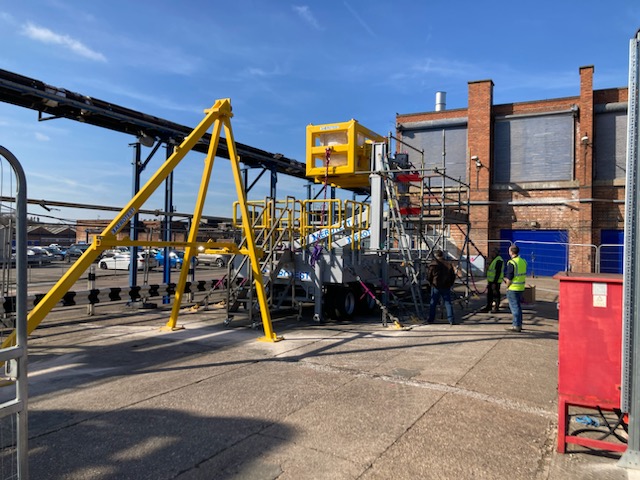Air travel has a high impact on our climate, with around 2.4% of global CO2 emissions coming from aviation. Horizon Europe provided funding to Rolls-Royce for a world-spanning project investigating the use of hydrogen fuel for a less carbon-intensive way to fly.

A lighter way to travel
To attain decarbonisation and reach Net Zero, we need cleaner air travel. Outside of burning less fuel, one option is to use a fuel that won’t produce carbon dioxide when burned. Hydrogen is a potential sustainable fuel, but comes with significant challenges. It has to meet the same high standards as current jet fuel in its performance and safety – the latter being paramount in aviation, with thorough certification processes for new technologies.
Rolls-Royce is a part of the Clean Aviation CAVENDISH project which explores the potential use of hydrogen as aviation fuel. Running from 2023 until the end of 2026, this collaborative, high-level learning exercise looks to understand how we could use hydrogen in gas turbine operation.
Engineers at Rolls-Royce are now working on the objective of taking a modern gas turbine to ground test with hydrogen fuel. The project team are also examining the challenges of using hydrogen, such as how to safely store it at cryogenic temperatures and bring it up in temperature to be used. With the aviation, energy and other sectors looking at how to use Sustainable Aviation Fuels including hydrogen, Rolls-Royce aims to reach of a level of capability and readiness for when the market is ready to move forward.
Green sky thinking
Rolls-Royce work on the project with 20 other partners across Europe, including three from the UK; University of Cambridge, Loughborough University, and aerospace company Short Brothers.
The CAVENDISH partners are led by Rolls-Royce’s team in Germany, working on a series of work packages that focus on a topic such as combustion. With a series of milestones to be met, everyone knows what they are doing from the application. The team meet virtually for regular progress check-ins, and in person twice a year with Clean Aviation and external evaluators.
The unique aspect of Horizon Europe is it enables projects to be constructed that enable collaboration across borders.
– Gary Way, Head of EU and International R&T Programmes
For Rolls-Royce, the CAVENDISH project perfectly fits its goal of bringing technology forward anticipating future market readiness. Aviation is a long-cycle industry, and Rolls-Royce’s capability and understanding of long-term products can help prepare it for the future. The company’s collaboration on EU research programmes at a variety of technology readiness levels for over 30 years has led to a long-standing relationship with the European Commission.
Rolls-Royce were aware of the Horizon Europe opportunity through this relationship, being a private member within the Clean Aviation Public-Private Partnership. Private members worked with the Clean Aviation Programme Office to co-create ideas for topics. The Clean Aviation Programme Office then created a work programme which provided the project’s goals, outcomes and impacts, as well as allocation of funding.
Following the launch of Open Calls in 2022 the CAVENDISH consortium, including the four UK entities, made an application to Clean Aviation. The consortium, led by Rolls-Royce, then spent 2-3 months producing a comprehensive 400-page application covering technical excellence, the impact they wanted to make, and how the project would be implemented efficiently and effectively. This was followed by a half-day hearing and 2-3 months of grant preparation. Following completion of the European grant agreement, the UK entities then applied via the more streamlined process, capturing specific details on funding and any changes since the Clean Aviation application.

Bringing hydrogen into the 21st century
Horizon Europe funding went to personnel costs to deliver the project, such as engineers, researchers and scientists, and equipment including hardware for the engines and specialist test equipment. This enabled rigorous R&D and safe testing of hydrogen combustion in aviation settings. Beyond funding, Horizon Europe enabled the project to collaborate across borders. Aeronautics is a global industry, and being able to connect with research partners and supply chain members across Europe and further afield, combined with Horizon Europe funding, meant Rolls-Royce had the means to drive innovation forward at a much faster pace.
The organisational support has been essential for Rolls-Royce to maintain its place in European research and innovation frameworks. Being able to be present in programmes such as Horizon Europe has allowed the company to both work on collaborative projects like this one in the present and to look to projects in the future.
The focus on objectives brought by working on a project funded by Horizon Europe programme has been invaluable, helping Rolls-Royce to understand the potential benefits and challenges for the gas turbine and prepare to think about integration with aircraft. Exposing these challenges has been crucial, particularly for something as complicated as preparing to use hydrogen in gas turbines at the height and speed needed for flight.
The excellent work that has come out of this project has helped Rolls-Royce to make significant progress in laying the foundations for hydrogen combustion. After successful tests, the company is now on the cusp of ground testing the engine at a full gas turbine level. There have been other long-term benefits for Rolls-Royce – innovations in how it measures, analyses and models systems can potentially be applied to other existing technologies.
The company’s advice for parties interested in Horizon Europe is to be engaged as early as possible with allocated time for application, which can be complex and needs to be completed as part of a collaboration. To find partners, Rolls-Royce recommends contributing to communities within their sector such as advocacy groups and forums.
The ability to be present in these programmes is critical not just for what we’re doing in the next 12 months but also for what we’re doing in the next decade.
– Gary Way, Head of EU and International R&T Programmes
Rolls-Royce has had a positive experience with Horizon Europe. Innovate UK’s support has been essential for the company to maintain its place in European research and innovation frameworks, and programmes such as Horizon Europe help Rolls-Royce to be better connected for future endeavours.
Find out more
Read more case studies on the Horizon Europe Hub and discover how this funding programme could be right for you.

